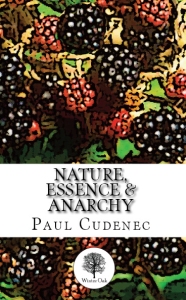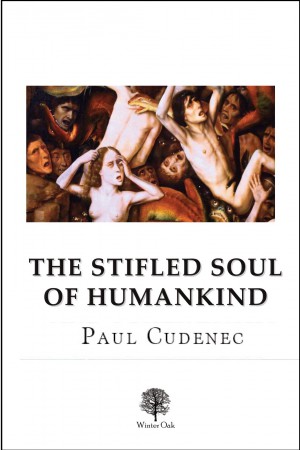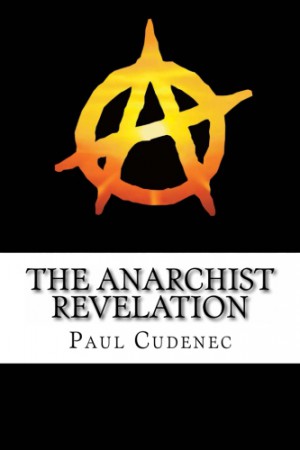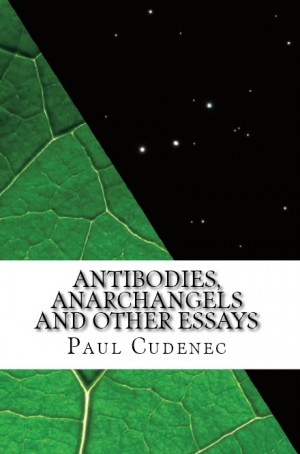Nature, Essence & Anarchy (2016)
The starting point of this collection of essays is that very future of our species and of planetary life is at threat from the unchecked growth of the industrial capitalist cancer and that there is a need for a powerful and coherent resistance.
He argues that there has been a general thought-paralysis which renders any authentic and holistic anti-capitalist philosophy difficult to conceive and communicate. Our intellectual immune system has been disabled.
As a result of this, anarchist and anti-capitalist thinking has to look deeper than the surface of what is usually regarded as the political realm and root itself in an intellectual soil completely outside of capitalism and all its assumptions.
The Fakir of Florence: A novel in three layers (2016)
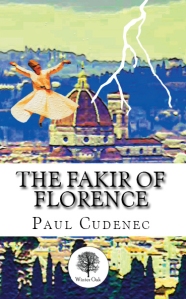
Perantulo is a wandering sage, spreading his mystic pagan wisdom from Khaluvia to Mesqa-Murro, from the chestnut forests of Sevennola to the rain-lashed archipelago of Prydina.
He is the fictional creation of il fachiro, an Eastern philosopher who arrived in Renaissance Florence in 1459 and challenged Cosimo di Medici and Marsilio Ficino’s Neoplatonist revival with his own empowering and anarchic metaphysics.
Paul is a writer visiting 21st century Italy who, while laying himself open to inspiration from the energies and art of the Florentine past, comes across an historical account of il fachiro and his fables. But he, too, resides inside a book – on one of the three layers of reality within The Fakir of Florence.
More info on The Fakir of Florence
First chapter – The Sultan and the Sage
Forms of Freedom (2015)
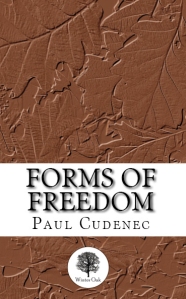 In this important work, Paul Cudenec challenges layer upon layer of the assumptions that lie largely unchallenged beneath contemporary industrial capitalist society. He rejects limited definitions of freedom as an absence of specific restraints in favour of a far deeper and more radical analysis which describes individual, collective, planetary and metaphysical levels of freedom. A powerful and tightly-argued work inspired by a profoundly coherent anarchist vision, Forms of Freedom is a potential classic of 21st century revolutionary philosophy. “How can the human race embrace freedom if it does not have a clear idea of what freedom is? How can we ever gain a clear idea of freedom if we do not even start looking for it in the right places? A collective delusion has taken over humanity, fogged its mind, rendered it incapable of understanding its own essential reality or the way in which it has become blinded to that reality and thus incapable of acting in its own real interests”.
In this important work, Paul Cudenec challenges layer upon layer of the assumptions that lie largely unchallenged beneath contemporary industrial capitalist society. He rejects limited definitions of freedom as an absence of specific restraints in favour of a far deeper and more radical analysis which describes individual, collective, planetary and metaphysical levels of freedom. A powerful and tightly-argued work inspired by a profoundly coherent anarchist vision, Forms of Freedom is a potential classic of 21st century revolutionary philosophy. “How can the human race embrace freedom if it does not have a clear idea of what freedom is? How can we ever gain a clear idea of freedom if we do not even start looking for it in the right places? A collective delusion has taken over humanity, fogged its mind, rendered it incapable of understanding its own essential reality or the way in which it has become blinded to that reality and thus incapable of acting in its own real interests”.
The Stifled Soul of Humankind (2014)
In The Stifled Soul of Humankind, Cudenec depicts a humanity dispossessed, a society in which freedom, autonomy, creativity, culture, and the spirit of collective solidarity have been deliberately suffocated by a ruthlessly violent and exploitative elite hiding behind the masks of Authority, Property, Law, Progress and God.
But he also identifies an underground current of heresy and resistance which resurfaces at key moments in history and which, he argues, has the primal strength to sweep away the prison walls of our diseased civilization and carry us forward to a future of vitality and renewal. Cudenec writes: “We have to reintroduce ourselves to history, not as observers but as participants. The power that we can rediscover in ourselves is, among other things, the power to create the future. Prophecy brings hope, hope brings courage, courage brings action, action brings inspiration, inspiration brings more determination, renewed hope, deepened courage. Once this magical spiral of revolt has started spinning, it takes on a life of its own”. Published by Winter Oak Press
The Anarchist Revelation (2013)
Here, Paul Cudenec turns his back on contemporary trends of anarchism in a bid to reconnect with the primal force of its root ideology. Cudenec notes the significance of its refusal of the state and its judicial system, of land ownership and of the need to work for wages in order to live.
But he goes further in suggesting that anarchism represents a whole way of thinking that stands in direct opposition to the blinkered materialism of contemporary society and its soul-stifling positivist dogma. He writes: “The anarchist does not merely stray outside the framework of acceptable thinking as carefully assembled by the prevalent system – she smashes it to pieces and dances on the wreckage.” Cudenec explores the fluidity and depth of thinking found in anarchism, in stark contrast to Marxism, and identifies, in particular, a love of apparent paradox that seems to appeal to the anarchist psyche. He also sees a connection between and anarchism and esoteric forms of religion – such as Sufism, Taoism and hermeticism – whose inner light defies the crushing patriarchal conservatism and hierarchy of the exoteric institutions. In making his case, Cudenec draws on the work of anarchists such as Gustav Landauer, Michael Bakunin and Herbert Read. But he also widens the field of enquiry to include the philosophy of René Guénon, Herbert Marcuse and Jean Baudrillard; the existentialism of Karl Jaspers and Colin Wilson; the vision of Carl Jung, Oswald Spengler and Idries Shah, and the environmental insight of Derrick Jensen and Paul Shepard. Review by Gabriel Kuhn Review by Helen Moore Published by Winter Oak Press
Antibodies, Anarchangels and Other Essays (2013)
This brings together a selection of work by Paul Cudenec in which he calls for a new deeper level of resistance to global capitalism – one which is rooted in the collective soul not just of humankind but of the living planet.
He leads us along the intertwining environmental and philosophical strands of Antibodies, through the passion of Anarchangels and The Task and on to a cutting analysis of Gladio, a state-terrorist branch of what he calls the “plutofascist” system. Also included, alongside short pieces on Taoism and Jungian psychology, is an interview with the author, in which he explains key aspects of his approach. Peter Marshall, author of Demanding the Impossible: A History of Anarchism and Nature’s Web: An Exploration of Ecological Thinking, has described Antibodies as “very readable and profoundly thoughtful… Many new insights on the destructive relationship between the greater part of humanity and the planet which tries to sustain them”. Published by Winter Oak Press
